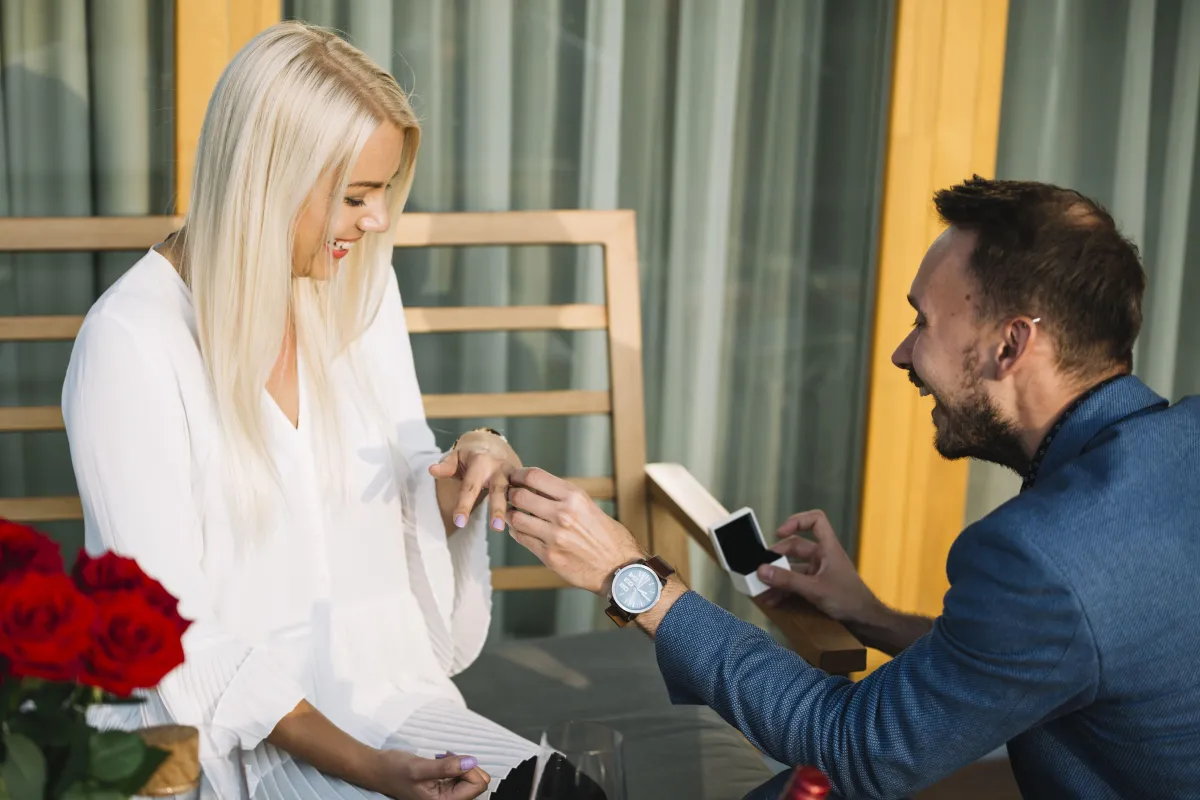What to Do When Your Spouse Leaves You: Immediate Steps to Regain Clarity and Control

Introduction
One minute, life feels steady—then suddenly, you're staring at an empty space where your spouse used to be. Maybe it came out of nowhere. Maybe the tension had been building, but you didn’t think it would come to this. Either way, you’re here now. Shocked. Abandoned. Numb. Hurt. Confused.
If your spouse left you unexpectedly, you’re not alone—and more importantly, you’re not broken. Whether you're thinking “What did I do wrong?” or “How do I even begin to cope?”—it’s okay not to have the answers right away.
This guide isn’t about rushing your healing. It’s about getting you through today. You’ll find:
Immediate grounding techniques
Practical next steps for emotional and financial stability
Validation for the raw emotions you’re experiencing
Guidance on what to do—and what not to do—right now
You don’t have to “move on.” You just have to make it through this moment. Let’s start there.
The First 24–72 Hours: Stabilizing Yourself
Let Yourself Feel — Without Judgment
Your world just cracked open. That aching tightness in your chest? Normal. The tears that won’t stop—or won’t come at all? Also normal.
Whether you’re screaming into a pillow or staring blankly at the wall, you’re not doing this wrong. This is grief in real-time.
Try:
Crying without self-shaming
Journaling what you can’t say out loud
Sitting in silence and just breathing
You don’t have to be strong right now. You just have to be real.
Avoid Reactive Decisions (e.g., legal threats, rage texts)
The urge to text them “How could you?” or fire off a scorched-earth post on Instagram can be overwhelming. But reaction is not the same as relief.
Avoid:
Drunk texting
Showing up at their workplace or new place
Airing your pain on social media
Instead, try this calming breathe box technique:
Inhale for 4 seconds → Hold for 4 → Exhale for 4 → Pause for 4 (Repeat 4 times)
You deserve peace—even if it takes practice.
Practical First Steps You Need to Take
Assess Immediate Needs
Start by checking your basic safety and logistics. Ask yourself:
Do I feel physically safe?
Do I have access to food, shelter, and transportation?
Do I need to stay with someone temporarily?
If there are children involved, make sure their needs are accounted for too, but don’t try to solve everything at once.
Tell Someone You Trust
You don’t have to go through this in isolation. Choose one friend or family member to confide in—even just to say, “I don’t know what to do.”
Ask them for:
A listening ear
Help with small things (meals, rides, child care)
Gentle check-ins over the next few days
You need an emotional witness—someone who sees your pain and stays.
Secure Legal & Financial Documents (Without Confrontation)
Even if you’re hoping for reconciliation, it’s smart to quietly safeguard yourself:
Make copies of bank records, tax returns, and joint bills
Secure your ID, passwords, and health insurance documents
Save contact info for your children’s doctors or schools
E-A-T Tip: Contact a licensed family attorney to understand your rights, even if you don’t take action yet. Avoid confrontational or DIY legal moves.
Stat: Over 60% of divorces are initiated by one partner without clear warning (source: AAMFT)
Emotional Reactions You Might Be Feeling
Shock and Disbelief
Your brain may refuse to register what just happened. You might find yourself checking your phone obsessively or replaying your last conversation over and over.
This is trauma-induced confusion, and it’s normal.
Shame and Self-Blame
You might catch yourself thinking:
“What did I do wrong?”
“I wasn’t enough.”
“Maybe I deserve this.”
Please hear this: Being left does not mean you failed. People leave for their own reasons—and often, those reasons have nothing to do with your worth.
Anger or Begging for Reconciliation
Wanting to scream or beg them to come back doesn’t make you weak. But acting on that impulse—especially in the early days—can lead to regret or deepen your pain.
This is often part of a trauma bond, where the pain and attachment get tangled.
"You can love someone and still need to let them go." — Vikki Stark, therapist & author of Runaway Husbands
What You Should NOT Do Right Now
Don’t Chase or Beg
Desperation often pushes people further away. It also damages your self-respect in the long term.
Instead of chasing, redirect that energy toward stabilizing yourself.
Don’t Spiral into Self-Destruction
Using alcohol, impulsive hookups, or vengeful social posts to numb the pain only delays it—and often makes it worse.
Avoid these traps:
Late-night doom scrolling their socials
Venting online where your kids or employer can see
Risky behavior to “feel something”
What you’re feeling is valid—but let it out in safe ways.
What You CAN Do to Start Coping
Begin Journaling or Voice Notes
Grab your phone or a notebook and let your pain speak.
Write:
“I feel abandoned because…”
“Today, I wish I could say to them…”
“Right now, I need…”
No one ever has to read this. It’s for you, not them.
Create a “Stabilize Me” Daily Routine
When your life is upside down, structure can help you stand upright.
Try this simple routine:
Wake up and shower by 9 AM
Make one healthy meal per day
Take a short walk, even just around the block
Hydrate (yes, water counts as self-care)
These small rituals aren’t solutions, but they’re the first bricks in your rebuild.
Join a Divorce Support Group
Being surrounded by others who “get it” can be life-saving. You’ll hear:
“Me too.”
“You’re not crazy.”
“You’re not alone.”
Try:
Local meetups via Rebuilders
Rebuilders offers a life changing support group that meets weekly and has helped countless people get started. Click here to learn more
One of our 10-week Online programs. New classes start every few weeks.
When to Seek Professional Help
Signs You Need Emotional Intervention
Please seek immediate help if you experience:
Insomnia or nightmares for more than a week
Panic attacks or heart palpitations
Suicidal thoughts
Total inability to eat, speak, or get out of bed
Pain is part of this—but suffering in silence shouldn’t be.
The Role of Therapists or Divorce Coaches
Therapists don’t just listen. They:
Help you reframe distorted thoughts
Guide you through emotional triage
Give you tools to set boundaries and build resilience
Closing Thoughts: You’re Not Broken — You’re Human
Your spouse leaving doesn’t define your worth. It doesn’t erase your value. And it doesn’t mean you’re unlovable.
You didn’t fail. They left. That’s not the same thing.
Right now, survival is enough. Later, you’ll rebuild. You’ll redefine. You’ll rise.
And when that time comes, you won’t just be healed—you’ll be stronger, wiser, and whole.
Related Posts

When to Start Dating Again: Signs You’re Ready
After divorce, the idea of dating can feel like stepping into a storm—exciting, but scary. You might wonder if you’re ready or if it’s too soon to try. At Rebuilders International, we’ve spent over 40 years helping people find clarity with our proven approach, backed by the Fisher Divorce Adjustment Scale (FDAS). This isn’t about rushing into love—it’s about knowing you’re ready to connect authentically. Here’s how to spot the signs and take that step with confidence.
Why Timing Matters for Dating
Jumping into dating too early can stir up old wounds, but waiting forever might mean hiding from life. Friends might nudge you to “get back out there,” but readiness isn’t about a calendar—it’s about your heart. Our method, tested by thousands, shows that dating works best when you’re grounded in yourself. The FDAS, with its .93 reliability, proves emotional clarity makes all the difference. Let’s explore the signs you’re there.
5 Rebuilders Signs You’re Ready to Date
These signs, drawn from our 10-week workshop, use our unique tools to help you know when you’re ready, rooted in trust and self-awareness:
You’re Done with “What Ifs”
If your mind’s no longer stuck on “Why did it end?” or “Could I have fixed it?” you’re moving forward. Our free self-test checks your disentanglement score—high scores mean you’re free from past loops. A group member said, “I stopped replaying the past and started seeing the future.” This clarity, like our thinking-phase work, shows you’re ready for new connections.You Feel “I Am Enough”
Dating from a place of lack invites old patterns. Our core belief? You’re a “gem,” whole as you are. If you can say, “I am enough,” and mean it, you’re on solid ground. A woman in our support group said this gave her confidence to chat without needing approval. This self-worth, tied to our identity tools, is a green light for dating.You Enjoy Your Own Company
If alone time feels peaceful, not lonely, you’re likely ready. Our groups teach that liking yourself is the foundation for liking someone else. One client said rediscovering solo hikes made him excited to share that joy. Check your self-test’s self-worth score—strong numbers here mean you’re not dating to fill a void, a key from our identity phase.You Trust Your Boundaries
Readiness means knowing what you want—and what you won’t accept. Our exercises, like listing your “must-haves,” help you set clear boundaries. A man in our online groups said this stopped him from chasing unhealthy matches. If you feel confident saying “no” kindly, our relationship-phase work shows you’re prepared to date.You’re Curious, Not Desperate
If you’re excited to meet someone new—not to fix your life, but to share it—you’re in the right headspace. Our “needs check-in” tool asks, “What do I want?” A participant said feeling curious about a date’s story, not their “potential,” was her sign. High social trust scores on our self-test signal you’re ready to connect from care, not need.
Dating on Your Terms
Knowing when to start dating again is about trusting yourself, not checking a box. Our structured approach has helped thousands since 1974, with workshop completers since 2021 showing stronger social trust via FDAS scores. You can step into dating with clarity too, one honest moment at a time.
Need Clarity? We’re Here
Figuring out if you’re ready can be tricky, but our programs—online, in-person, or self-paced—offer tools and a community to guide you. Visit our homepage or book a free clarity call. Want to start small? Join our free support group Tuesdays online.
You’re Ready When You Say So
You’re built for connection on your own terms. What’s one sign you’re noticing in yourself today? Share below—we’re cheering for you!


